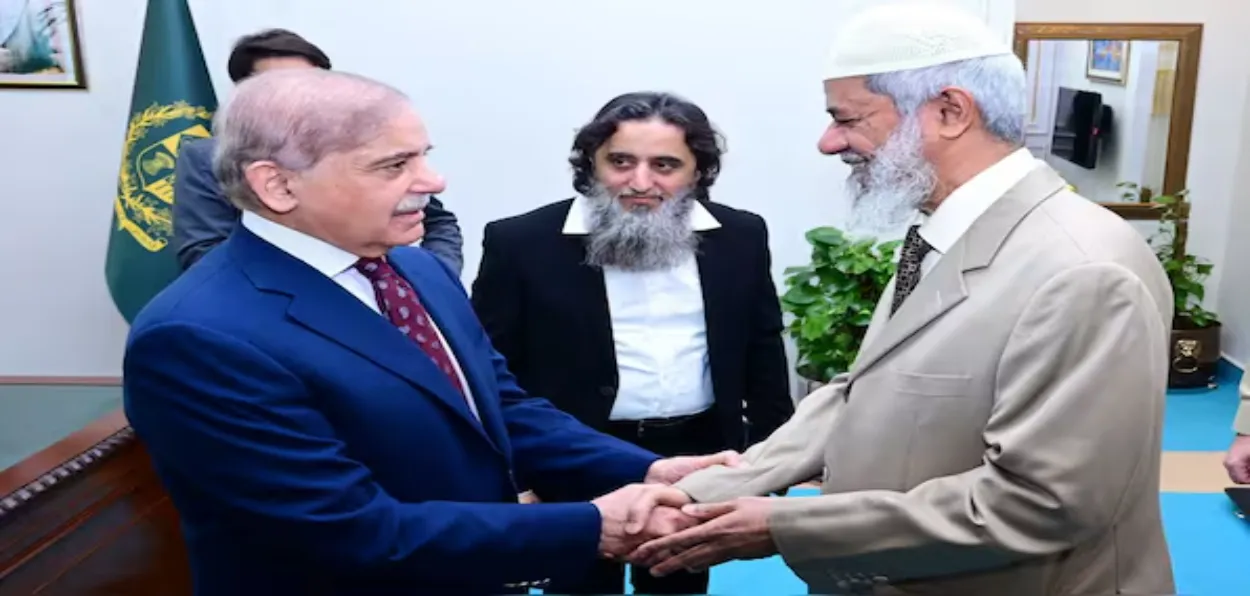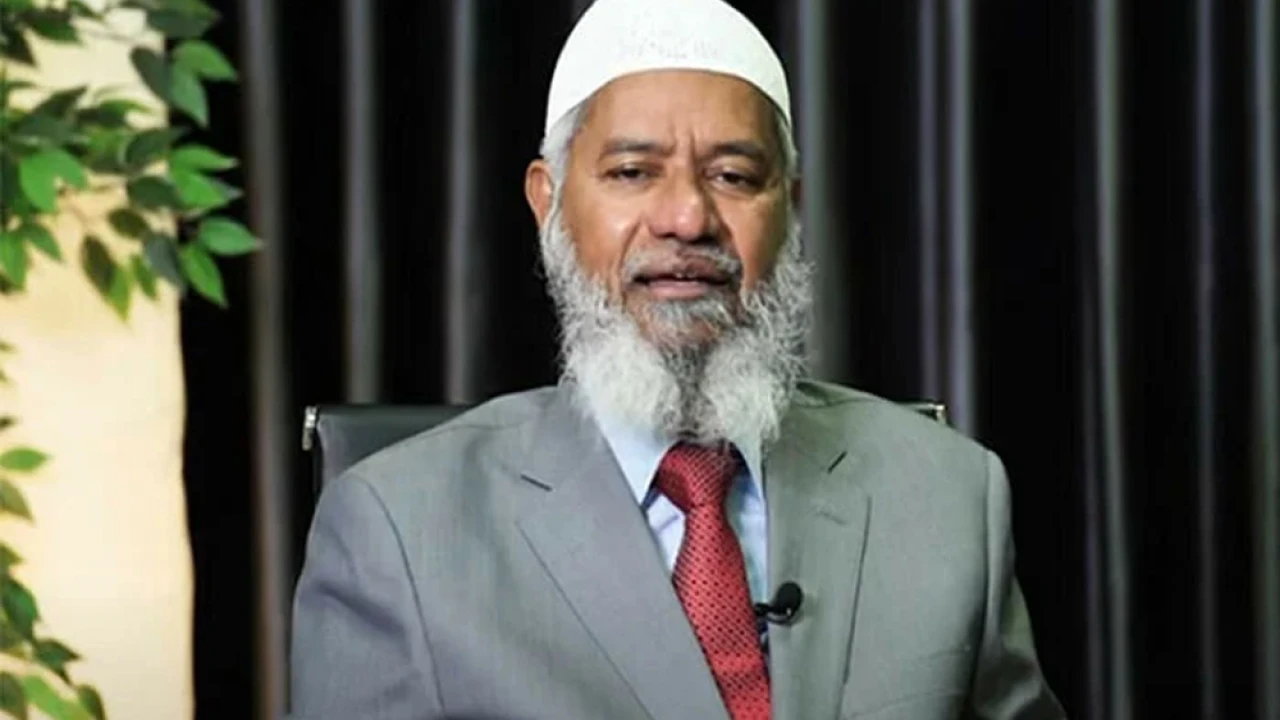
Sheikh Mutawakil
Dr. Zakir Naik, the well-known Islamic orator, was long considered an authority on comparative religion, and admired by millions. His vast knowledge of religious scriptures allowed him to engage in debates and lectures, often turning audiences in his favour. However when Dr. Naik embarked on a trip to Pakistan, the land where he enjoyed a substantial following, the unthinkable happened - he faltered.
He faltered not in his knowledge, but in his demeanor. The trip became an obvious example of how even a scholar of his status could be undone by a lack of patience and emotional control, especially when facing the critical eye of the young generation driven by logic.
Pakistan, a country where Islamic extremism is deeply ingrained in the fabric of society, seemed like a natural arena for Dr. Naik to shine. It was a place where many believed his message of religious comparison would resonate deeply with the masses. However, Pakistan was not without its intellectual challenges, particularly from a rising class of liberals, thinkers, and academics who had long been critical of the more dogmatic interpretations of religion.
Dr. Naik knew that he would face questions from Pakistani liberals, individuals who championed modern interpretations of Islam, questioned traditional scholarship, and weren’t afraid to scan public figures like Naik. Yet, the preacher was confident that his years of experience in debates and public speaking would allow him to counter any argument with logic and scripture.
Yet for all his scholarship, Naik didn't realize that confidence is one thing; arrogance is another. And it was in this gap that Dr. Naik’s failure happened.
The moment of confrontation came when Dr. Naik was asked to engage with a group of Pakistani liberals at an intellectual forum in Islamabad. These were not your typical antagonistic debaters but educated individuals who had critical questions about his views on women’s rights, free will, secularism, and the intersection of Islam with modern governance. The liberals in Pakistan had long been vocal about these issues, seeking reform and advocating for a balance between religious tradition and modern values.
Dr. Naik’s usual strategy in debates—an assertive, sometimes confrontational style—had worked in environments where his authority was largely unquestioned. But this time, it was different. His first responses, though backed by Islamic references and scriptural citations, were met with further probing questions. The liberals weren’t interested in simple answers; they wanted thoughtful engagement. As the dialogue went on, the questions became more pointed, asking for interpretations that aligned Islam with modern, progressive ideas. It was here that cracks began to show.
Unable to provide satisfying answers that merged tradition with modern values, Dr. Naik’s composure began to slip. What should have been a calm and intellectual exchange turned into a tense back-and-forth? His frustration was visible. He raised his voice. He became defensive, portraying the questioners as uninformed or deliberately antagonistic toward Islam. It was the first time that many had seen Dr. Naik visibly shaken, unable to keep his cool in the face of disagreement. His responses grew more emotional, and the polished, scholarly attitude he was known for began to erode in the eyes of the audience.
 Dr Zakir Naik
Dr Zakir Naik
The turning point came when a young woman asked ”Dr. Naik about his stance on women’s rights in Islam, and asked about the social evils like drugs and rape in much-practiced Islamic society. Instead of providing a balanced answer that acknowledged the complexities of the issue, he became visibly irritated, framing her questions as an attack on Islam itself. The audience was stunned. Instead of winning over the crowd with wisdom, Dr. Naik seemed to lose control, reacting with anger and irritation—a trait unbecoming of a scholar and preacher.
Islamic tradition holds patience in high regard as other religions out there. The Prophet Muhammad is often remembered for his unyielding patience, even in the face of personal attacks and relentless opposition. As a scholar, Dr. Naik was expected to follow this patience, especially when engaging with those who challenged him. In losing his patience, Dr. Naik lost more than just a debate—he lost the moral high ground. His outburst undermined the respect many held for him as a scholar. Instead of responding with calm wisdom, he became reactionary, emotional, and defensive.
The anger he displayed suggested that, despite his vast knowledge, he is unprepared to deal with intellectual resistance. His inability to address the questions in a composed and thoughtful manner exposed a significant weakness. A true scholar, regardless of belief, does not shy away from difficult questions or react with frustration when challenged.
In that sense, Dr. Naik’s trip to Pakistan was a failure not because of the questions themselves, but because of his inability to respond to them with the patience and grace expected of a scholar. His failure was not in the substance of his knowledge but in his loss of composure. That resulted in his status as a scholar being called into question.
Preachers, especially those in the public eye, carry the heavy burden of representing not only their personal beliefs but the broader image of the religion they preach. Patience is the most crucial attribute for any preacher, more so when engaging with critics. A preacher’s role is to guide, not to confront, and in moments of disagreement, patience allows for deeper understanding and the opportunity to teach without hostility.
The Prophet Muhammad himself faced far harsher opposition and yet maintained his patience and humility, responding with kindness even to those who wished him harm. In this, he set an example for scholars and preachers of all times: knowledge alone is not enough. One must embody the virtues of the faith one preaches, with patience being the cornerstone of all interactions.
In failing to display patience, Dr. Naik did more than damage his reputation; he gave critics ammunition to question the authenticity of his scholarly credentials. A preacher who cannot control his emotions in the face of dissent has lost more than just an argument—he has lost the ability to teach.
Dr. Zakir Naik’s failure during his trip to Pakistan serves as a reminder that knowledge without humility and patience can lead to downfall. Scholars and preachers are held to a higher standard, and the expectations of patience, wisdom, and restraint in the face of opposition are paramount. His trip, while a personal failure, offers a larger lesson for those in positions of religious authority: to be a true scholar is not only to know but to embody the virtues of patience and forbearance in all things.
ALSO READ: Assam's first CM wrote biography of Prophet Muhammad in Assamese
In the end, Dr. Naik’s experience in Pakistan is a cautionary tale—a reminder that the most potent tool a preacher has is not his knowledge but his ability to remain calm, composed, and patient, especially when the world around him questions his beliefs.
The author is a Delhi-based writer
